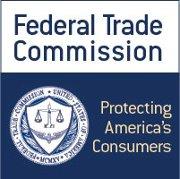
FTC Testimony Highlights Agency's Work to Protect Consumers, Promote Competition
In testimony before the Senate Appropriations Subcommittee on Financial Services and General Government, the Federal Trade Commission described its work to protect consumers and promote competition through vigorous enforcement, education, advocacy, and policy work, and by anticipating and responding to changes in the marketplace.
Testifying on behalf of the Commission, Chairman Joe Simons noted that the FTC is the only federal agency with jurisdiction to both protect consumers and maintain competition in most sectors of the economy. When possible, the FTC returns money to consumers who have been harmed. During FY 2017 alone, the agency returned more than $543 million in redress to consumers and deposited $94 million into the U.S. Treasury.
In FY 2019, the agency is requesting an additional $3.4 million for expert witnesses to support the increased numbers of complex investigations and litigation in both competition and consumer protection matters, according to the testimony.
To protect consumers from unfair, deceptive and fraudulent practices in the marketplace, the FTC pursues law enforcement actions, and educates consumers and businesses about their rights and responsibilities. For example, the Commission’s anti-fraud program targets schemes ranging from imposter scams to emerging frauds to robocalls. Recent examples include “Operation Tech Trap,” a nationwide and international crackdown on tech support scams, and obtaining a $280 million penalty against Dish Network with the agency’s state and federal partners – the largest penalty ever issued in a Do Not Call case, the testimony states.
According to the testimony, the agency’s priorities in privacy enforcement include financial privacy, children’s privacy, health privacy, data security and the Internet of Things. For example, last year, Internet-connected smart television manufacturer Vizio agreed to pay $2.2 million to settle charges that it installed software on its TVs to collect the viewing data of 11 million consumers without their knowledge or consent.
In the past year, the FTC has continued to bring cases challenging false and unsubstantiated health claims, including those targeting older consumers, those affected by the opioid crisis, and those with serious medical conditions. The Commission has brought cases challenging products that claim to improve memory and ward off cognitive decline, relieve joint pain and arthritis symptoms, and even reverse aging, the testimony states.
The FTC also vigorously enforces U.S. antitrust law, working in tandem with the Antitrust Division of the U.S. Department of Justice, the testimony states. The FTC’s competition enforcement covers many sectors that directly affect consumers and their pocketbooks, such as health care, consumer products and services, technology, manufacturing, and energy, according to the testimony. Since the beginning of fiscal year 2016, the Commission has challenged 45 mergers, after the evidence showed that they would likely be anticompetitive. While most of these cases were resolved via divestiture settlements, the Commission has voted to initiate litigation to block seven mergers in the last year alone; three of these deals were abandoned by the parties, while four are still being litigated. The Commission also maintains a robust program to identify and stop anticompetitive conduct, with a number of cases in active litigation, the testimony explains. The Commission further promotes competition through a robust policy and research agenda, and international cooperation and coordination, the testimony states.
The Commission vote authorizing the testimony was 5-0.
